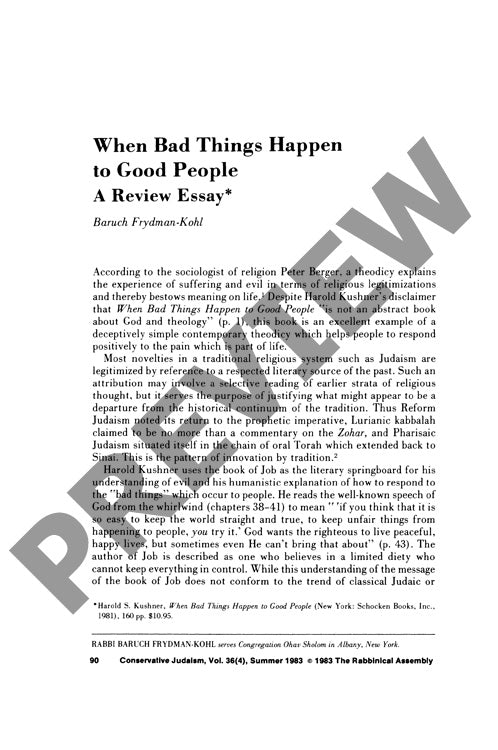When Bad Things Happen to Good People A
Couldn't load pickup availability
Harold Kushner's landmark theodicy "When Bad Things Happen to Good People" radically reframes the age-old problem of human suffering by proposing a limited deity who cannot control all events - a theological Copernican Revolution that prioritizes human dignity over divine omnipotence. Through comparative theological analysis situated within Jewish theodic traditions, particularly German Pietism and Lurianic Kabbalah, three core explanations for suffering emerge in Kushner's work: free will as a divine gift enabling moral choice, the invariable operation of natural laws, and random events in spaces beyond divine creative order. Using the Book of Job as a literary foundation, Kushner's approach exemplifies "innovation by tradition," transforming the fundamental question from "Why?" to "What now?" While his humanistic theology proves pastorally effective by integrating psychological insights with contemporary religious needs, it introduces significant theological tensions, particularly regarding the concept of random evil operating independently of divine will. The analysis reveals that although Kushner successfully provides comfort to those experiencing suffering, his framework raises substantial metaphysical questions about divine nature and the complex relationship between God, fate, and natural order that demand deeper theological investigation.

More Information
-
Physical Description
-
Publication Information
Published
ISBN
-
Publication Credits
Baruch Frydman-Kohl

